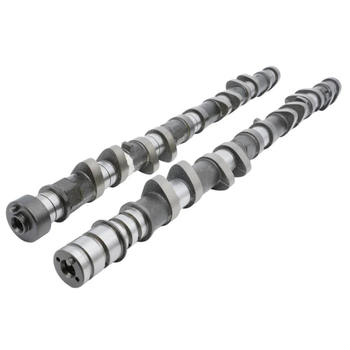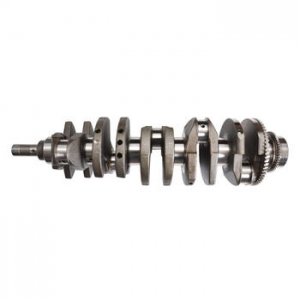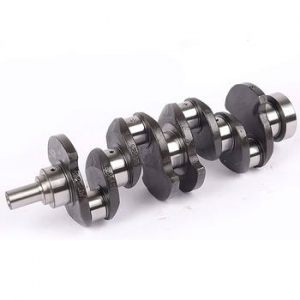Introduction
The crankshaft is a critical component of any internal combustion engine. It converts the reciprocating motion of the pistons into rotational motion, which in turn propels the vehicle. Unfortunately, crankshaft failure is a common issue that can lead to costly repairs and even engine replacement. In this article, we will explore the most common causes of crankshaft failure and provide some solutions for addressing them.
Common Causes of Crankshaft Failure
There are several factors that can contribute to crankshaft failure. Here are some of the most common:
Identifying Crankshaft Failure
Crankshaft failure can manifest in a number of ways. Here are some of the most common symptoms:
- Vibrations: If the crankshaft is damaged or worn, it can cause vibrations that can be felt throughout the vehicle.
- Knocking noises: A knocking or tapping noise coming from the engine may indicate that the crankshaft bearings are worn or damaged.
- Poor performance: If the crankshaft is not functioning properly, it can lead to a decrease in engine performance, such as reduced power and acceleration.
- Oil leaks: If the crankshaft seals are damaged, oil can leak from the engine, which can lead to further damage and potentially catastrophic failure.
Solutions for Crankshaft Failure
If you suspect that your crankshaft is damaged, it's important to take action as soon as possible. Here are some solutions for addressing crankshaft failure:
- Replace the bearings: If the bearings are worn or damaged, they will need to be replaced in order to restore proper clearance and reduce vibrations.
- Improve lubrication: Make sure that your engine is receiving adequate oil pressure and that the oil is of good quality. This will help to reduce friction and wear on the crankshaft.
- Reduce stress: If the engine is being overloaded, it's important to reduce the stress on the crankshaft. This may involve reducing the weight of the vehicle or limiting the amount of torque that the engine is producing.
- Replace the crankshaft: In some cases, the damage to the crankshaft may be too severe to repair. In these cases, it may be necessary to replace the entire crankshaft.
Preventing Crankshaft Failure
Fortunately, there are steps that you can take to prevent crankshaft failure from occurring in the first place. Here are some tips:
- Regular maintenance: Regular oil changes and tune-ups can help to keep the engine running smoothly and prevent wear and tear on the crankshaft.
- Proper loading: Make sure that you are not overloading the engine by carrying excess weight or towing heavy loads.
- Avoid sudden acceleration: Rapid acceleration can put undue stress on the crankshaft, leading to premature wear and potential failure.
- Address problems promptly: If you notice any symptoms of crankshaft failure, such as vibrations or knocking noises, have the problem addressed as soon as possible to prevent further damage.
Conclusion
Crankshaft failure is a serious issue that can lead to costly repairs and even engine replacement. By understanding the common causes of crankshaft failure and taking steps to prevent it, you can keep your engine running smoothly and avoid unnecessary expenses. If you do suspect that your crankshaft is damaged, don't hesitate to seek professional help as soon as possible.




